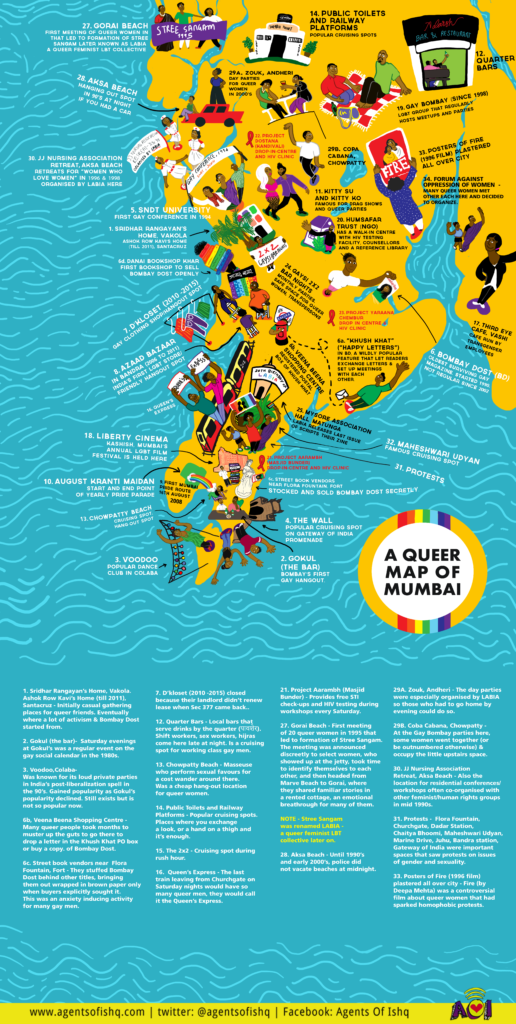Illustration by Shrujana Niranjani Sridhar
You know what? Amchi Mumbai has always been queer – it’s just that we’ve always been looking at it with straight glasses on.
What would happen if we took those glasses off? Well, then you could put on your special Agent of Ishq glasses and see the real city, glittering all around you and even do a little time travel!
We bring you a queered map of Mumbai – with places old and new, visited with love and desire, and intent. We put it together with love and lots of help from other agents, who also shared with us the deep significance of some of these places hold if you’re queer – like the street book vendors near Flora Fountain who would hide copies of Bombay Dost behind other titles, and hand them over discreetly wrapped in brown paper to anxious men keen not to be spotted. Or the party spots in town like Voodoo in the early 90s or Kitty Su in the present, or places of activism like Gorai Beach where a group of women met in 1995 to form Stree Sangam (known today as LABIA – A Queer Feminist LBT Collective).
In putting together this map, we want to show you the places where a queer person can seek history, community and pleasure, and present a new map of the city. From support groups to nightclubs to cruising spots to walk-in centres where you can seek help, here’s a fun way of getting to know your city through a queer lens!

Here’s a big thank you to Sridhar Rangayan, Ashok Row Kavi from Humsafar Trust, and Shals Mahajan from LABIA – A Queer Feminist LBT Collective for taking the time to help us build the map.
Sources:
https://psmag.com/news/the-rise-fall-and-resurrection-of-indias-oldest-surviving-lgbt-magazine
http://gaysifamily.com/2010/09/24/azaad-bazaar
https://www.thehindu.com/news/cities/mumbai/labia-celebrates-20th-birthday/article8003123.ece
Gay Bombay: Globalization, Love and (Be)longing in Contemporary India (2008) by Parmesh Shahani

